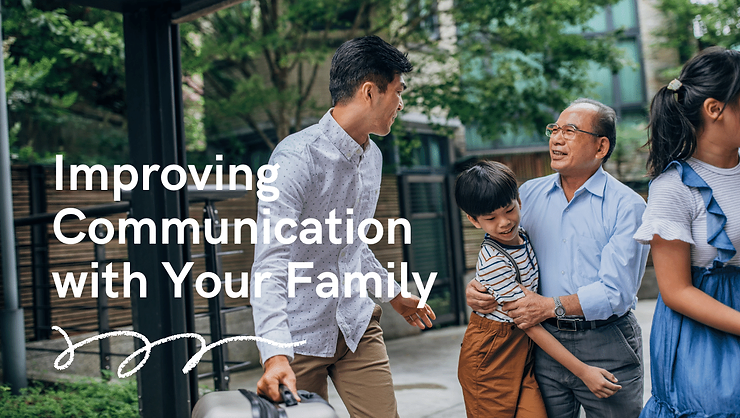
Conversation is at the heart of any relationship, and family relationships are no different. It can make natural interactions difficult if a family member has hearing loss, resulting in feelings of loneliness, anger, and dissatisfaction all around.
Treating hearing loss with hearing aids can make a difference right away to defuse these feelings. But to prevent misunderstandings and decrease tension further, it helps to have some extra communication tactics.
The following tips will help you make communication flow more smoothly with those in your family with hearing loss.
Don’t take it personally
It’s easy to take things personally when dealing with someone with hearing loss. If they don’t hear you from across the room or respond inappropriately, your loved one can come across as shy, or at worst, rude. Keep in mind that it is not their fault, take a deep breath, and don’t get upset. Hearing loss interferes with speech recognition ability.
Move in closer
If your loved one doesn’t hear you, it won’t help to yell at them from another room. Get closer to your loved one to encourage easier communication. Pull up a chair, sit down, and make sure that you have their attention before you start speaking.
Try to position yourself so that they can see your face. Your loved one has a greater chance of knowing what has been said and engaging in the conversation by following your body language, facial expressions, and reading lips.
Eliminate distractions
Those with hearing loss have trouble concentrating on speech sounds against background noise with hearing loss. Take a second to turn the TV off, turn the radio off, or shut the window if you are at home. Making sure background noise stays to a minimum will make it easier for your loved one to understand and make sure everyone can communicate.
Talk at a normal volume
A standard error we often make is to believe that it’s still better to talk louder. But this isn’t always the case. Shouting can distort speech sounds and make it hard to figure out what is being said. The best thing you can do is talk clearly if you want your loved one to understand you.
Use more words
Using a few more words for those unable to hear will make all the difference between knowing what has been said and being confused. “Stay away from” yes “or” no “one-word answers and say stuff like” Yes, I remember “or” No, I didn’t. Adding in a word or two takes no extra time, but can save everybody a lot of confusion and encourage quick communication.
Rephrase your words
If a member of your family didn’t understand what you were saying, don’t just repeat the same words. Chances are, the second time, they won’t understand either, and both of you will end up disappointed and angry. Instead, find a way to paraphrase what you have said.
Encourage your loved one to treat their hearing loss.
Even the best communication strategies won’t work long if your loved one refuses to acknowledge and treat their hearing loss. This is a bigger issue than you think. The Hearing Loss Association of America reports that individuals usually wait seven years from when they first experience changes in their hearing before they begin to seek care.
If your loved one isn’t yet using a hearing aid, it’s time to chat and persuade them to get a hearing test about the benefits of hearing aids. From standard behind-the-ear models to advanced in-the-canal hearing devices almost invisible, there is a hearing aid to suit any hearing loss. Advanced features allow you to tune in and block distracting distractions from speech sounds. Several devices even have Bluetooth streaming capabilities, so your loved ones can stream audio and phone calls straight to their ears.
The 2020 pandemic has taught us that regular communication with those we love is critical for our emotional health. If you know someone who would benefit from a hearing test, talk to them about it. With their consent, contact us today to set up a hearing consultation.
